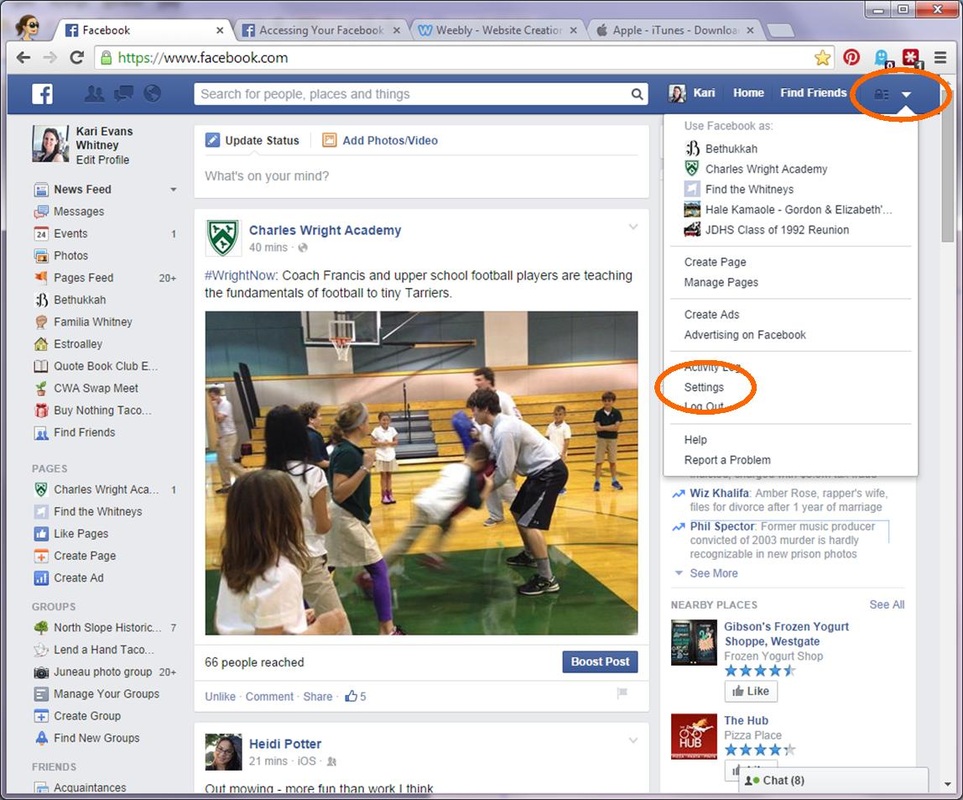|
I recently found need of a webcam because my computer, as new as it still seems to me, does not have one. Being my thrifty self, I posted a request on my local Buy Nothing group. Voila! Thanks, community! It seemed simple enough. Typically, any USB-tailed device plugs straight into my computer, finds its driver, and does its job. Alas, this was not the case today. I could easily have just written a descriptive note to my husband for help in trouble-shooting, but it seemed worthwhile to make the minor expansions into a blog post, lest another poor soul struggle as I did.
In a sidebar to today's Wall Street Journal technology article, Websites Wary of Facebook Tracking, journalist Reed Albergotti points us to a potentially harrowing nugget of personal privacy by outlining instructions to download the data Facebook keeps on us.
I couldn't contain my curiosity, and so I took a look. While the contents were slightly amusing (I'm a funny gal) and somewhat useful (I've now downloaded all of my Facebook photos), they're pretty dull. However, I'm not a master of cookies, pixel tags, and IP data. If I had to guess, the aforementioned article's fears are probably centered around the security file included in the download, as well as the association of tags in the ads file. As Albergotti directes, I navigated to the general settings of my account, clicked on "Download a copy of your Facebook data," and followed the prompts. This instantly generated the following message to my connected email account: Further to my ascertation that technology runs on voodoo magick.
There's an article over at c|net about a Volvo/Ericsson program in which deliveries would be made straight to the trunk of your car.
I think this is a brilliant program that combines existing technologies. Delivery services are meant to be convenient and GPS and remote car access have been around for awhile (thinkOnStar). So it frustrates me to see the fearful comments on the c|net article, as if this were a new and untested technology. Moreover, the comments sadden me, as the protagonist clearly trusts no human, and especially not strangers of a young age, working for minimum wage. He is suspicious of the demographic, and seems to assume primarily bad will come from this. Is this a case of believing it into existence? The delivery boy has done nothing to earn the disrespect. It would seem to me that a complete lack of basic respect for another human being can only ensure an increase is wrongdoings. Instead, I say we let the delivery boy rise to the challenge, embrace the work he has been given, take the chance that he won't rob you blind, and allow him to take pride in his work. How does it make you feel when others believe in you? |
Kari's BlogCategories
All
Archives
September 2015
|
Photos from Paeonia*, gagilas, afoncubierta












